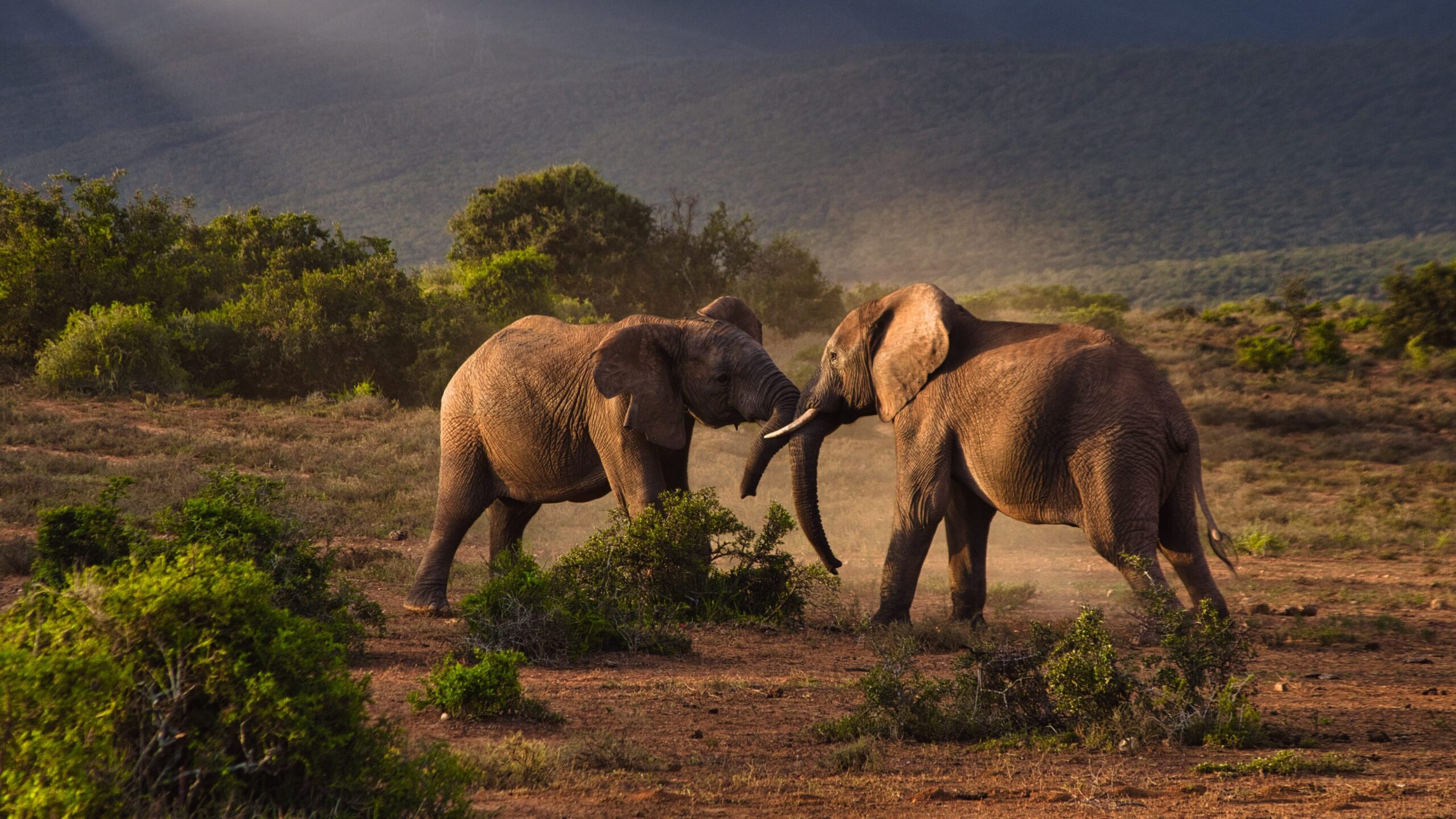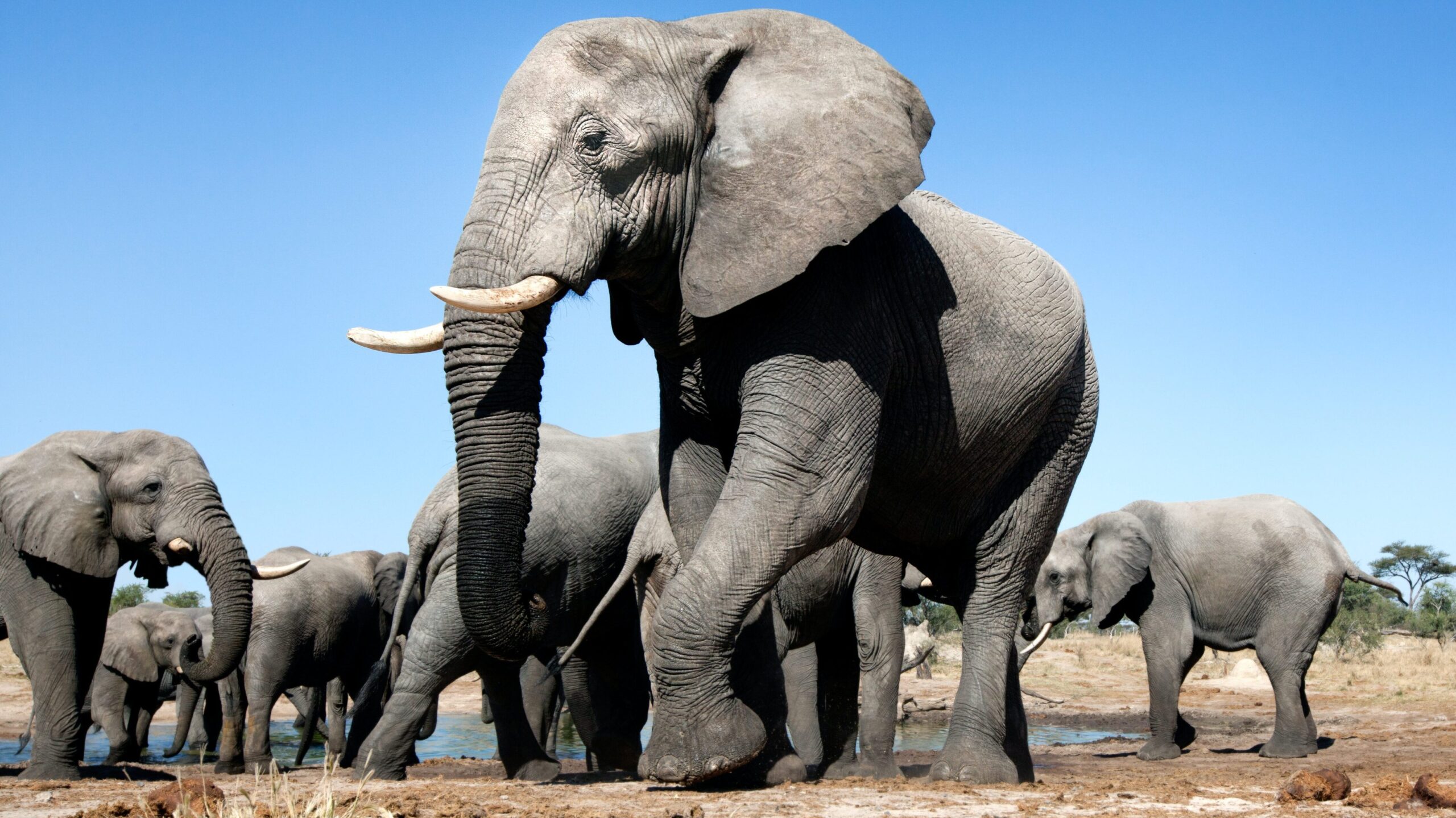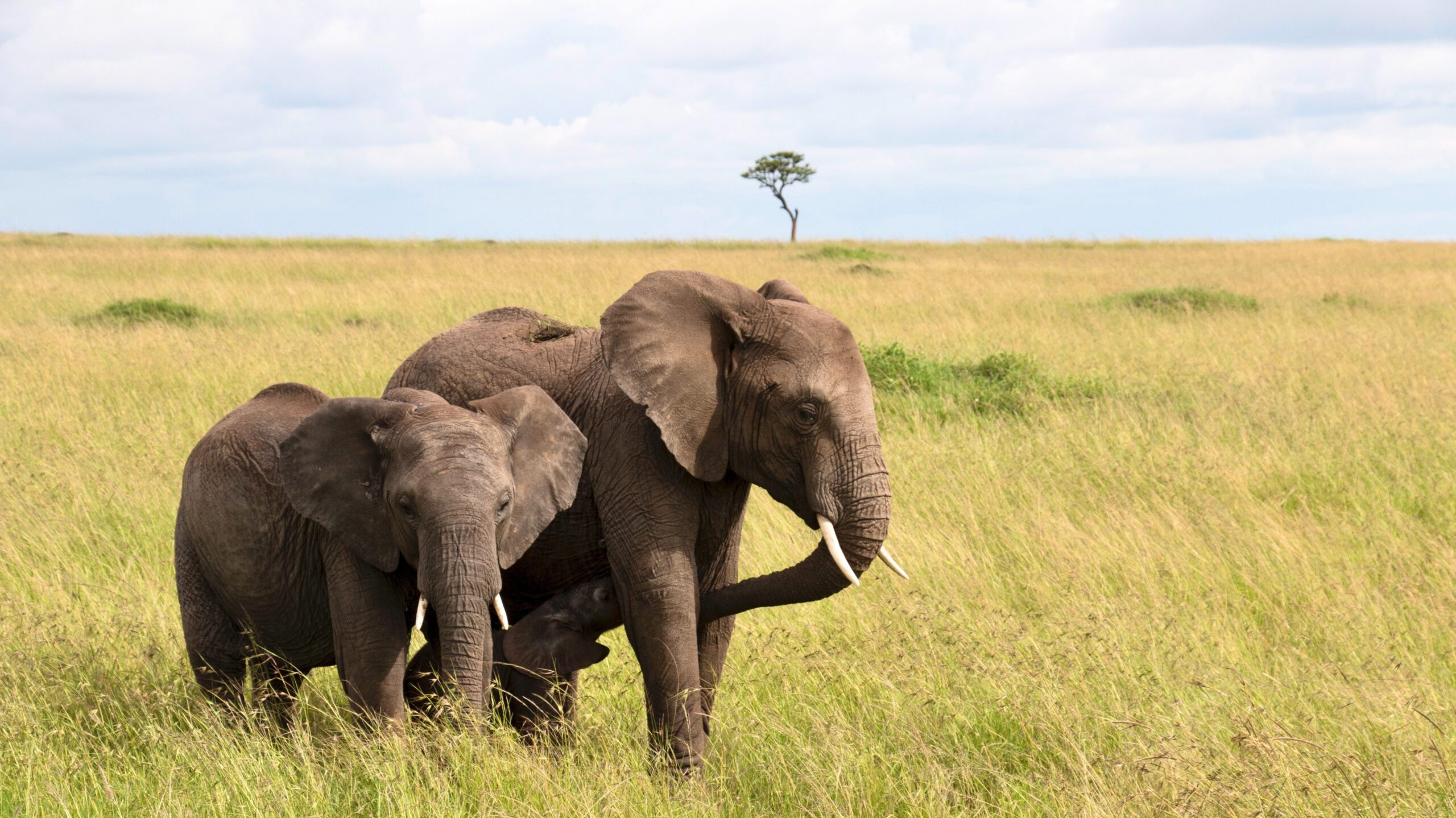Elephants: massive, wise, and adorable all at the same time. Thing is, how much do you really know about these gentle giants? Did you know that they use infrasound to communicate? Or that they can remember other elephants, even if they only briefly met 23 years ago?(that’s why you say ‘an elephant never forgets‘). Ahead of International Elephant Day, we’ve gathered up some of our favourite facts about amazing animals.
They have the biggest brains of any land mammal
11-13 pounds. That’s pretty hefty. They have a whopping 257 billion neurons. It’s about four times the size of a human brain, which is generally about 3 pounds, with a measly 86 billion neurons. In fact, elephants have the largest brain of any land mammal. Surely that should make them even smarter than us, right? Well, it’s about where the neurons are that counts. Although elephants possess three times as many neurons as us, they only have a third as many in their cerebral cortex, which is where all the higher cognitive thinking goes on.
We think you’ll also like: Witness the world’s best wildlife on these 14 Trafalgar trips
They have amazing memories


Their big brains might be why they have such incredible memories. Repeatedly, scientific studies have shown elephants are able to recall, remember, and recognize locations and others – even if that memory was from decades ago. They’ve been known to remember locations of water sources and food over long distances, such as in the 1993 study in Tarangire National Park, Tanzania. Here, researchers studied three herds of elephants during the 1993 drought. Their normal feeding areas had dried up, but they were able to recall routes to alternative food and water sources. There are also countless stories of elephants recognizing humans and other elephants, even if they had only met once decades ago. The touching story of circus elephants Shirley and Jenny comes to mind.
This remarkable memory obviously helps elephants survive in challenging environments, but it also contributes to their social connections.
Elephants hug and comfort each other


Elephants’ memories must help with their social connections. After all, if you remember every face you meet, you’re likely to have a lot of friends! They’re known to be highly social animals with intricate relationships. They form strong bonds within their herds, often displaying behaviors such as touching, hugging, and even offering comfort to one another during times of distress. That’s got to be one of the cutest elephant facts on this list.
They can recognize themselves in the mirror


Is one of the markers of true intelligence the ability to recognize yourself? Some scientists think so. That’s why animals that can, like great apes and dolphins, are often thought smarter than other animals. Well, elephants are now part of the club too. Graduates at Emory University put a huge mirror in the elephant enclosure at the Bronx Zoo. Three Asian elephants started checking things out, sniffing around, and playing peakaboo. But for scientists, the gold standard of mirror self-recognition is to touch a spot on the body that you would not normally see. And that’s exactly what one elephant, called Happy, achieved. Scientists painted a white spot on her head which she explored with her trunk, all while gazing at herself in the mirror. Vain.
Scientists think that the ability to recognize oneself in the mirror evolved with capacity for empathy, a trait that dolphins, apes, and elephants also all coincidentally share.
We think you’ll also like: The best safaris for every kind of traveller
They look after each other. Maybe that’s why they’re called gentle giants?


This capacity for empathy might explain why, despite their massive size, elephants are renowned for their gentle nature. You can see this in how they treat others in their own herd. If one elephant is injured, the rest of the herd will actually slow down to make sure the injured elephant isn’t left alone. There are even moments when elephants have been spotted trying to assist sick or dying family members. They use their trunks and tusks to lift them and make distressed calls.
Elephant Communication


Perhaps it’s because they’re such good communicators. Did you know that elephants use infrasound, sounds below the range of human hearing, to communicate over long distances? Like whales, alligators, giraffes and rhinos, they can make infrasonic calls. They use these powerful, deep calls to coordinate group movements and find other elephants to reproduce with. They can actually communicate with other elephants up to 4 kilometers away! This unique form of elephant communication helps them stay connected, warn of danger, and even convey emotional states within their social groups.
We think you’ll also like: How reconnecting with nature on these African safaris will improve your health
The elephant trunk: one of nature’s most unique organs


One of the most amazing things about elephants is their trunk. It may be the most sensitive organ of any mammal, with around 150,000 muscle units. They use it to breathe, smell, touch, and produce sound. They use it to suck up water to drink (it can hold up to 8 liters!), or even as a snorkel when swimming. And at the end of the trunk are what’s called fingers, which they can use to pick up and hold things as small as a blade of grass or even a paintbrush.
They use sunscreen


Beneath their tough exterior, elephants have sensitive skin that can feel even the slightest touch. Despite weighing up to 900kg, elephants’ skin is incredibly sensitive and can sunburn just like any other hairless mammal. One of our favorite elephant facts is that, to combat the sun, elephants cover themselves in dust and mud to protect from the sun. It also makes a great bug repellant.
We think you’ll also like: 6 Unmissable Wildlife Encounters in Australia and New Zealand
They’re Matriarchal
In Elephant society, the women are in charge. Elephant herds are typically led by a matriarch, usually the oldest and most experienced female. This is the backbone of the elephant family unit; they guide the group and provide stability. The general hierarchy for the females in the group is based on leadership, experience and age – in general, the older females hold the higher rankings.
How to avoid unethical elephant tours
Learning about these elephant facts give us a deeper understanding of these majestic creatures and their intricate lives. And, frankly, it makes us want to go out into the world to meet and learn from these wise animals ourselves. However, elephants have not always been treated well by the travel industry.
We’ve mentioned the elephants Shirley and Jenny, who recognized each other from when they had met at a traveling circus, forced to perform under cruel conditions. In our research, we found that elephants amazingly can paint, too, but many questions arise around the ethics of training an elephant to do so. And stark images, like this of Thai elephant Pai Lin, show what years of tourist rides can do. So, we raise the important question of considering how you interact with elephants when exploring the world. For this, we recommend turning to an article we wrote called ‘Five Ways to have an Ethical Elephant Experience’ before rushing to book your next safari.
With that said, we hope this has inspired a desire to learn more about our natural world. And if so, come join us on one of our Safari tours. We follow strict ethics standards as set out by the How We Tread Right Foundation, ensuring your interactions with elephants, or any other animals for that matter, will always be sustainable, ethical, and promote conservation.
i love elephants this helps so much